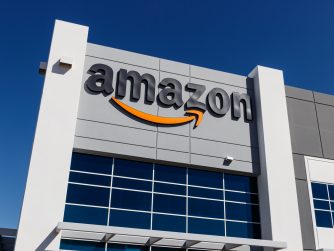Gamestop (GME), Amazon (AMZN), AWS and the Dark Pools
Podcast Transcript
Hey this is Jeffrey with another edition of stock Smart, March 9th, 2021 edition. Hope you’re doing well. GameStop back in play, up nearly 14% to 221, short squeeze here extremely small, 30 to 40% maybe, there’s been talk from the GameStop board about entering into the digital gaming market, duh, a little late probably? Major manufacturers of hardware, Sony Playstation, Xbox, they all have their own stores direct connect to the hardware. Are they going to be too late? You know, are they going to have a plan in the market and you wonder unless they have some kind of unique or creative way to attack the marketplace.
[00:00:37]
You would think that they’d be too late to the game but it is moving, all has to do with the Chewy CEO being on the board and igniting some more energy and more ideas to the company. Again, they have major problems. They have 5,000 leases in retail outlets all over the country and that’s going to create issues for them. So there’s some more of a short squeeze. There is the old people going back to it again and pumping it up but it doesn’t seem likely to stay there. It does have support now if you look at it it does have support around 120, but this 220 price is a little bit galactic for it.
Stock Smart contest coming, in next few weeks, we’ll have more information about our very first stock-picking contest.
[00:01:18]
Again, we’re deciding if we’re going to limit it to 25 but we may open the first one up as we start to get more people involved to a larger stock-picking contest. Non fungible tokens getting some interest again as Jack Dorsey released his piece of art that sold for in the neighborhood of 2.5 million, which was essentially Jack Dorsey in a picture with the very first tweet that ever was on Twitter. More neutral on the S&P 500 oscillator, market is making a big move. Perhaps, the 10-year note and the bank of Japan not raising interest rates is finally taking some effect and the growth stocks are back in play. If you look at the triple Qs as far as the RSI in the oscillator for that individual stock or ETF were oversold that thing hit an all-time low from a year.
[00:02:09]
So if you go back a year when we first entered Covid, which was about a year at this time that thing has hit a low meaning it’s been oversold down in the 30 range. And again, the RSI goes from 0 to 100, 30 enters a period of oversold. That’s where the triple Qs were. So if you were watching and trying to time this, which again is very difficult to do that would be a place especially in an ETF, which is a basket of stocks where you can maybe take a look and say well maybe we’ve done too much here. And then if you look at the chart, you look at it over a year, you’ll see it never entered that range at all for a one year period. So, we’re a little bit overdone and you can see, and remember the reason those things sold off so big last year
[00:02:50]
Last year when we had Corona or the initial Covid hit, the market lost 30% so a lot of those things just got hammered for no reason. But again, some of the key stocks in the triple Qs which make about 25% or a large portion of the triple Qs uses technology companies, Amazon, Facebook, Microsoft, Apple, they really haven’t done much in the last two or three months. The only one of the fang stocks that’s really moved is Google which has outperformed all the other Fang stocks in recent times. So the VIX is down a bit today as you’d expect with the market up day, down about 4% at 24, a safe zone for the VIX.
[00:03:29]
You’ll know when we’re in it, probably around 20 and my guess is we’re not going to get there until we get into bank earnings which are still about four weeks away. So in this little lull period here, in between a non buy-back period, we’re not hearing a lot of buybacks. I would doubt with the likelihood or the probability of corporate taxes going up, because corporate taxes were reduced under our prior president and the new administration is talking greatly about raising corporate taxes that those treasuries or those funds on the balance sheet are going to be kept a little bit longer this year and we’re not going to see probably as many buybacks especially in this first quarter here so watch for that and I would say watch the VIX, I would expect the VIX going down and coming into earnings.
[00:04:13]
Now we have this kind of lull or a blackout period.
STOCK WATCH
Let’s take a look at a stock. We’re going to be playing the marketing language game, see if you can pick this one up, it’s a pretty well-known company. We offer a range of products and services through our websites, the company operates through 3 segments, North America, International and AWS, well that’s a big reveal right there, the company’s products include merchandise and content that are purchased for resale from vendors and those offered by third-party sellers. Also manufactures and sells electronic devices. Who are we? Ding ding ding, it’s Amazon. Is it time to dip a toe here? The stock has really been sideways for a long period of time. Really since November, October. This thing has really been in a range of 2900, went to a high of about 3500, but it’s really just kind of flattened out and been, you know sub-2900. Today they’re making a big move.
[00:05:14]
This was kind of expected, up about 4%, up $100 to 3056, probably still time to get in here though. Last year earnings were really amazing. But this last earnings period, almost every big tech growth stock sold off, great earnings didn’t matter. It was just the sign of the times, this was this period in earnings where we were so frothy going into it that no matter what you did on earnings, the stock sold off. And then it also had the added effect of Jeff Bezos stepping down as the day-to-day CEO and that’s Andy Jassy stepped in, who had run the AWS segment, which was their big moneymaker for years. And Jassy is going to be the day-to-day CEO and Jeff stepped down.
[00:05:58]
Which doesn’t have the impact you think it would and if you look at some of these companies in the last like 10-15 years that have had these major well-known CEOs step down. The impact is not as great as people think, you know, if you look at Apple, okay, so of course it is impossible to replace a Steve Jobs, but Tim Cook has done a great job with this company, Apple stock has seen massive growth under Tim Cook. That’s one example, Microsoft, Bill Gates he took a long time to kind of leave the company and we don’t really know how Jeff Bezos is going to leave the company, his impact is still going to be felt, but Bill Gates took a long time leaving and now Satya Nadella, what they’ve done at Microsoft, that stock has done amazingly well.
[00:06:40]
So it’s not necessarily a bad thing for you know, Jeff Bezos to step aside. Look at Google. Google’s just keeps churning along, doing what it always does, buys companies that we don’t even know about, works on projects no one hears about until they blow them up, Google continues to churn like the machine it did before Larry and Sergey left. So these companies aren’t going to be hit the way you think. I think when we all look back, we think about like what happened to Apple. It was a different kind of time period, what we were doing back then, but when Apple initially got rid of Steve Jobs lot of acrimony, lot of problems and they went through a bunch of different non-tech CEOs.
[00:07:17]
The CEOs that were replacing them are well-versed, like Apple did that really weird movie where they had the guy from Frito-Lay come in or they had the Pepsi guy come in, those guys didn’t know technology. They know big business, they know shareholders. They know how to run companies but this technology aspect and creativity and creating products, maybe not where you know where they needed to be so you look at these new CEOs that are taking over they are well-versed in technology
So we got NASDAQ back up 3%, so looks like the growth stocks today coming back into favor so it could be good for Amazon. So I think time to dip a toe back in Amazon, and take a look. One thing I was thinking about Amazon is if you’re a product maker you make some kind of great product.
[00:07:57]
Like let’s say you make the world’s best toilet bowl brush and you sell it on Amazon. Or you have your website let’s say you have your website on AWS. It’s kind of interesting right, a lot of companies nowadays. This is one thing that AWS is facing is that it’s gotten so big and it also has sort of the conflict of interest because Amazon sells all these products.
[00:08:21]
So a lot of companies that are huge manufacturers of certain types of products will not go on AWS because they’re worried about Amazon seeing the data in terms of sales and the demographics of their user because after all if you’re in AWS’ Cloud, then you going to be able to see AWS could technically I don’t know if they should, they probably shouldn’t, but they could technically see all the activity that’s going on in that server and that would give them an unfair advantage. This is an advantage that Amazon has held for many years. We all see how there’s a product that’s being sold AWS, they have an AWS server the company where they sell it on Amazon that’s even easier that’s happened forever, where people have a product on Amazon and Amazon immediately replicates it.
[00:09:03]
And then sells it for less because they can so that is one thing that Amazon is always facing it’s facing this idea that yeah, AWS, their back server engine, which is amazing, and I have another company that I own, a technology company or agency business that I own, and we are in Amazon Cloud have been for many years and I can tell you that cost savings alone being in the Amazon Cloud, amazing and inefficiency. I’ve started in this industry when servers would go down and you would have to go at 3 in the morning because you had a power outage and go reset servers, you know, there was no way to do that in the past. Now, you push a button and the servers reset, it’s rebooted and things work.
[00:09:46]
But you know, having been in this industry and been in technology for 25-30 years, you can see the advances and the move from you know, where you had the storage facilities or these network facilities that were remote in good locations. Now you have everything is online where you can get in touch with your server in 2 seconds through a graphical user interface and make all the changes you want. It’s amazing. They have a great service, but they’re facing this challenge with information, where certain companies will never be able to go on AWS’ platform because there’s a competitive risk against Amazon the company.
THE AVERAGE INVESTOR
So a question from Diane, and this is an area where we’re going to get a little bit more, do some research, and bring some information to you about the dark pools because that’s what the question is from Diane.
[00:10:35]
Diane wants to know what the dark pool is and I’m going to kind of go with the Investopedia, definition here, the dark pools are private exchanges for trading securities that are not accessible by the investing public, also known as dark pools of liquidity. It’s a reference to their complete lack of transparency. So here’s what happens, you’re a major institutional investor and you hold a billion shares of apple and you don’t want to necessarily have the price affected the way it would be on a national exchange nor could you throw a billion shares or a million shares, let’s just make it reasonable, a million shares of Apple on to the marketplace.
[00:11:13]
It would greatly affect the price of the stock and the exchanges could have a really huge price fluctuation by doing that trade, you can go in with other institutional investors into these dark pools and with the SEC there’s about fifty of them registered currently and you can go and make transactional trades in a transparent way, meaning no one knows who made the trades no one knows that the trades went on in terms of the national exchanges. It doesn’t impact the price on the national exchange. Now what if you’re a retail investor and you’re sitting there on the sidelines. You don’t know anything about these dark pools, you don’t have access. And all of a sudden there was a trade yesterday of Apple and everyone’s bailing in the dark pools on Apple. People are picking it up.
[00:11:59]
Yeah, there has to be a buyer and a seller but there’s a lot of bailing on Apple. And in the dark pool the price is going down down down down. That may not impact the regular market till the day later. And if you’re sitting there not knowing what’s going on in a dark pool, it’s going to impact you as a retail investor when you sit there and you’re wondering why my Apple stock went down $25 in a day for no reason. Well that may be extreme, that example but that is what goes on in the dark pool. Now one of the things about these institutional investors too, is you have to make a couple of assumptions. Institutional investors are managing, you know, billions of dollars sometimes. They have gigantic research teams.
[00:12:43]
There is a thought that they may know something that other people don’t know. Maybe they got wind of something, not necessarily legal, but maybe they know about something. Well, that’s a place where you can trade these dark pool trades because people follow trades all the time, just like everyone followed the GameStop trade on Reddit, professionals, institutional traders followed that trade. Because they knew it was going on. There’s a new ETF called Buzz that’s essentially going to be an index of the Buzz Marketplace on social media that has an algorithm that’s going to follow what’s going on in trading. So people follow what big traders do. That’s why the 13(f)s are so important, because people want to know what these huge hedge funds are doing so they’ll look at those 13(f)s and they’ll say
[00:13:29]
Well, he’s in Marathon petroleum or they’re in DoorDash, or they’re selling DoorDash, or they got out of DoorDash. Those are watched closely because they want to know what those large institutions are doing because there is an assumption and again, it is an assumption that these large institutional investors may have a bit more information. That’s why when people watch these unusual options. They’re paying attention to it because if somebody sees an option on a company may be heading into earnings in 2 weeks and they see an outstanding position meaning a large position on a call option, they will go in and buy the stock. There’s also another reason because market makers will generally hedge that position buying a lot of the underlined positions themselves to hedge against those call positions, but that’s what’s going on.
[00:14:13]
So the anonymous nature of the dark pools is something that the SEC doesn’t really like and a lot of people don’t know about this, but it’s something you should pay attention to because it’s about 15% of all the trading that goes on. So a lot of information out there, and it could affect the price of your stock and you don’t even know it. So what we’re going to do is I’m going to get more and more research on the dark pools and I’ll bring you some dark pool trades and as we gain more information, we’re going to share it with you and bring it out to the public. Thanks for listening and we’ll see you again next time on Stock Smart.
More from this show
Real Estate Expert Bradford Shepherd, Interest Rates, Real Estate as an Investment for Retirement
Supply Chain Expert Enrique Alvarez, Container Prices Drop, Fuel Costs in Trucking & Shipping
Guest Casey Stubbs of Trading Strategy Guides, Record Buybacks, Inflation & Bonds and Upcoming Stocks Splits, Amazon & Google









Recent Comments